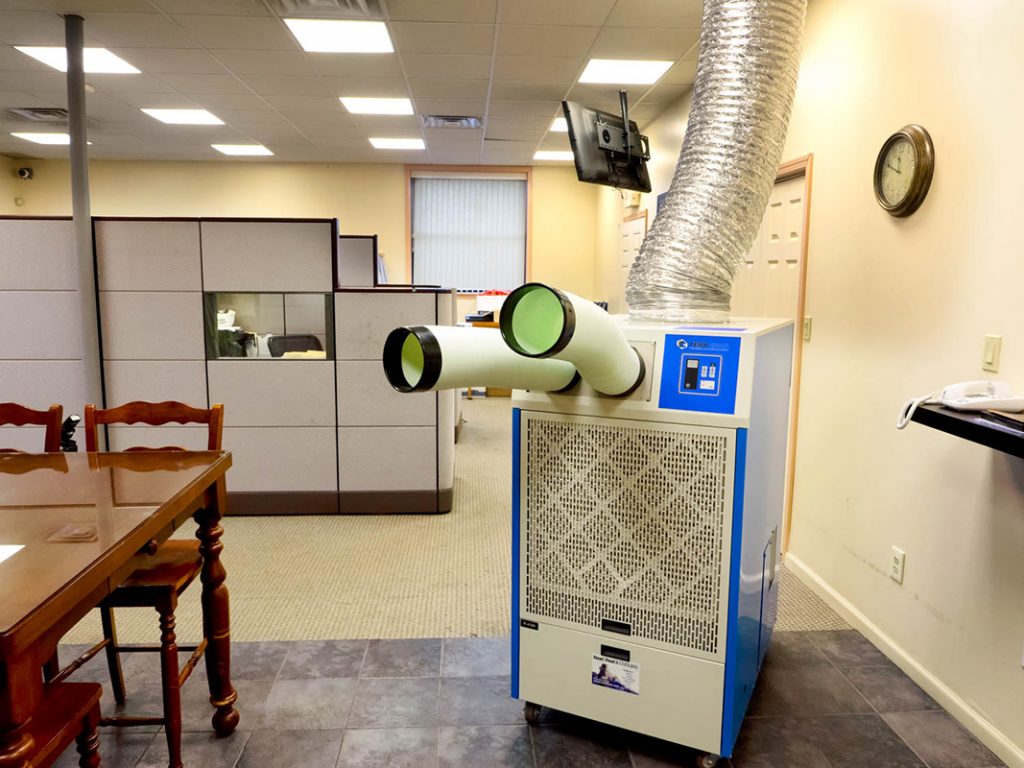Portable Air Conditioners – Water Vs. Air Cooled
When looking at portable air conditioners, both water cooled and air cooled air conditioners are very effective at providing temporary cooling and humidity level reduction.
Air cooled air conditioners are more popular and more often used. They’re easy to set up, highly portable and enable you to direct cold air wherever you need it most. The difference between water cooled vs. air cooled units is in how the heat generated from the compressor is removed from the area to be cooled.
Air cooled portable air conditioners utilize an integrated fan to cool the compressor as well as direct the exhaust air flow through ducting, to an area that is not being cooled; such as the exterior, a ceiling, a crawl space or some other area that doesn’t require cooling. Various ducting methods can be employed, including ducting directed through an exterior window, ceiling tile kits or other means. Condensation removed from the air being cooled is then routed to a condensation bucket (which requires regular emptying) or more commonly, a condensate pump is utilized to constantly direct collected condensate water to a drainage source.
Water cooled portable air conditioners use water to remove heat from the compressor. In these applications, having access to water supply and water drainage is required. Some municipalities have building usage code that may prohibit the discharge of return water, therefore the use of water cooled units may not be advisable and/or permissible if such code restrictions apply. Water cooled portable air conditioners have the ability to operate in hotter ambient temperatures making them very effective in situations such as industrial applications. Water cooled air conditioners use less electricity per ton of cooling than certain air cooled units, so they may be a good option when the power supply is limited. In certain applications it may not be appropriate or conducive to have water supply and return lines in the areas where cooling is required.
Neat Heat and Cooling can review your specific temporary cooling needs and suggest the best option.
We have a full line of portable air conditioners, reflecting various sized water cooled air conditioners and air cooled air conditioners.

